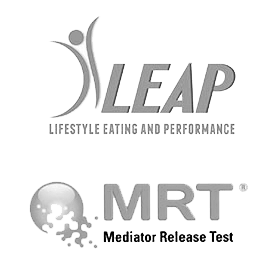IBS Symptoms
Diarrhea, constipation, cramping, bloating, abdominal pain, gas, and acid reflux/heartburn

This week, we are digging more into the symptoms of IBS. These symptoms include diarrhea, constipation (or both), acid reflux/heartburn, cramping, bloating, gas, abdominal pain. Usually, it is a combination of these things. If you look at the picture below, this is the GI tract. IBS is irritable bowel syndrome, but can actually affect the esophagus (heartburn), the stomach (pain/cramping), as well as everything below the stomach (small intestine and colon) which are also referred to as the ‘bowels’. Technically, this syndrome affects more than the bowels. Keep reading to learn more about these symptoms, what causes them, and what to do.

Diarrhea
If you are having diarrhea, you are experiencing loose or watery stools more than 3 times per day. Looking at the stool chart above, it can look like type 6 or type 7. Diarrhea is not only uncomfortable; it also can cause other problems-poor nutrient absorption, dehydration, hemorrhoids, and aversion to food (because who wants to use the bathroom immediately after they eat?). Often diarrhea is triggered by food intolerances or sensitivities but can also be infection, low organ function (pancreas, gallbladder, liver), bacteria, medication, foodborne illness, stress, and many others. Diarrhea that is oily, foamy, or very foul smelling is call ‘steatorrhea’, and happens when your body is unable to digest fat appropriately.
Constipation
‘Normal’ bowel movements happen anywhere from 3x per day to 3x per week. Going longer than 2 days without a BM? You are constipated. Constipation is COMPLEX. It also involves hard stool that is difficult to pass, resulting in tearing, hanging out on the toilet for long periods of time (=hemorrhoids), feeling like there is a blockage, feeling like you cannot fully empty your bowels, and straining. Usually stool looks like type 1, and if you are lucky enough to get a type 2 on the Bristol stool chart above, it can be like passing a brick! I’m sorry, TMI? Then you must be on the wrong blog ;) There are 5 major causes of constipation.
1. Medical conditions. Autoimmune illness, diabetes, GI disease, poor thyroid function, neurological disorders like Parkinson’s and MS, paralysis, food sensitivities, and psychological conditions-to name a few.
2. Medications. Interestingly, a lot of our GI meds like Zofran, dicyclomine, antacids, and bile acid sequestrants. There are many more-antidepressants, NSAIDs, opiates, chemotherapy, birth control…
3. Supplements. Calcium and iron.
4. Imbalance of gut bacteria- dysbiosis.
5. Lifestyle. 50% of my clients see tremendous success resolving constipation by increasing fiber and water consumption, getting 150 minutes of physical activity a week, and going with their natural rhythm. Have to poop? Go poop! Waiting until after school or work can cause your body to retaliate.
Gas, Bloating, and Abdominal Pain
LOTs of causes for these guys. The main cause is dysbiosis (imbalance of good and bad bacteria or overgrowth of bad bacteria). SIBO (small intestine bacterial overgrowth) and H. Pylori are common culprits. We have 4-5 pounds of bacteria in our gut. When there is not an ideal mix, it can cause food to ferment in the small or large intestine forming carbon dioxide gas. Ever opened a soda after shaking it? That is the same gas that some foods can create in your gut-causing bloating, pain, and flatulence. Food intolerances, such as lactose (milk sugar), can cause these symptoms. Did you know only 30% or so of American adults can fully digest lactose?
Maybe you have seen the low FODMAP diet. It is true that the major food culprits of bloating/gas/pain are in this fermentable group of foods. Next week we will cover what to eat with IBS and get in depth with the FODMAPs.

Acid Reflux/Heartburn
When acid travels back from the stomach to the esophagus, it is called reflux or heartburn. Usually, dysfunction of the lower esophageal sphincter allows the little door that separates the stomach from the throat opens back up and all that serious acid from the stomach (pH of 2 in that puppy!) comes back up causing belching and pain. WHY does this happen, you ask? Great question. Weirdly, low stomach acid can cause this. Without adequate acid, pressure builds up and pops that sphincter open. What causes low stomach acid (hypochlorhydria)? So glad you asked. Advanced age, stress, vitamin deficiency, long term use of antacids, h. pylori, and gastric bypass surgery are the main culprits.
Diet can also cause heartburn, but it is important to note that this is on a person-by-person basis. Yes-caffeine, spicy foods, acidic foods, alcohol, peppermint, chocolate and tomatoes can cause these symptoms. However, not for everyone. Most people only have a few triggers on this list.
Other IBS Symptoms
Nausea, early fullness when eating, mucus in stool, brain fog, incomplete bowel movements have all been reported.
How Are These Symptoms Treated?
As discussed in previous blogs, a physician will likely treat the symptoms with medication. It is always a good idea to go see your doctor if you experience GI symptoms so they can rule out conditions other than IBS that may require a different treatment. A physician may also make suggestions about lifestyle- such as adding or removing certain fibers or trialing an elimination diet. If you have been advised to try eliminating large groups of food, it is important to work with a dietitian or your physician to re-introduce foods after a period of 3-8 weeks. Fun fact-about 65% of people NEVER re introduce foods after being told to eliminate them. Imagine a life without cheese or coffee when all you needed was a 3-week break?!
More About SIBO and H. Pylori
SIBO: Small Intestine Bacteria Overgrowth is just that-too many ‘bad’ bacteria in the gut. Most of the bacteria we have is in our colon, so a bunch of bugs in the small intestine affects absorption, production of digestive enzymes, and digestion. SIBO can be methane producing causing stinky gas and constipation or hydrogen producing causing loud gas and diarrhea. It can also be a mix of both-days of constipation then diarrhea, typically referred to as IBS-M or IBS mixed type. How do these bacteria get in there? Poor diet does not promote healthy, diverse bacteria so this can be a cause. Low stomach acid from h. pylori or other causes mentioned above means that the acid in the stomach is not killing bacteria that may hitch a ride on food, allowing it to infiltrate up in there. Alcohol, diverticular disease, and intestinal surgery also promote bacterial overgrowth.
H. pylori Bacteria: Often acquired during childhood, this bacterium is present in more than half the global population. It causes symptoms in some and does not in others. Symptoms include ulcers, diarrhea, constipation, hypochlorhydria, inflammation of stomach lining (gastritis), and even stomach cancer.
I hope this has helped you understand more about IBS symptoms. Want to get into it?
DISCLAIMER: THIS WEBSITE DOES NOT PROVIDE MEDICAL ADVICE.
Molly Ostrander is a Registered Dietitian and not a physician. You should always see a licensed physician if you think you have a aliment or illness that requires medical attention.
This information, including but not limited to, text, graphics, images and other material are for educational purposes only. No material on this site is intended to be a substitute for professional, individualized medical or nutrition advice, diagnosis, or treatment. If you or any other person has a medical concern, you should always consult with your healthcare provider or seek other medical treatment immediately. NEVER disregard professional medical advice or delay in seeking care because of something you have read on this blog, website, or any linked material.
REFERENCE LIST
1. National Center For Complementary and Integrative Health. Irritable Bowel Syndrome: In Depth. https://www.nccih.nih.gov/health/irritable-bowel-syndrome-in-depth. Accessed April 10, 2022.
- Ford AC, Moayyedi P, Lacy BE, et al. American College of Gastroenterology monograph on the management of irritable bowel syndrome and chronic idiopathic constipation. American Journal Gastroenterology. 2014;109(suppl 1):S2-S26.
- Kearney DJ, Brown-Chang J. Complementary and alternative medicine for IBS in adults: mind-body interventions. Nature Clinical Practice. Gastroenterology & Hepatology. 2008;5(11):624–636.







